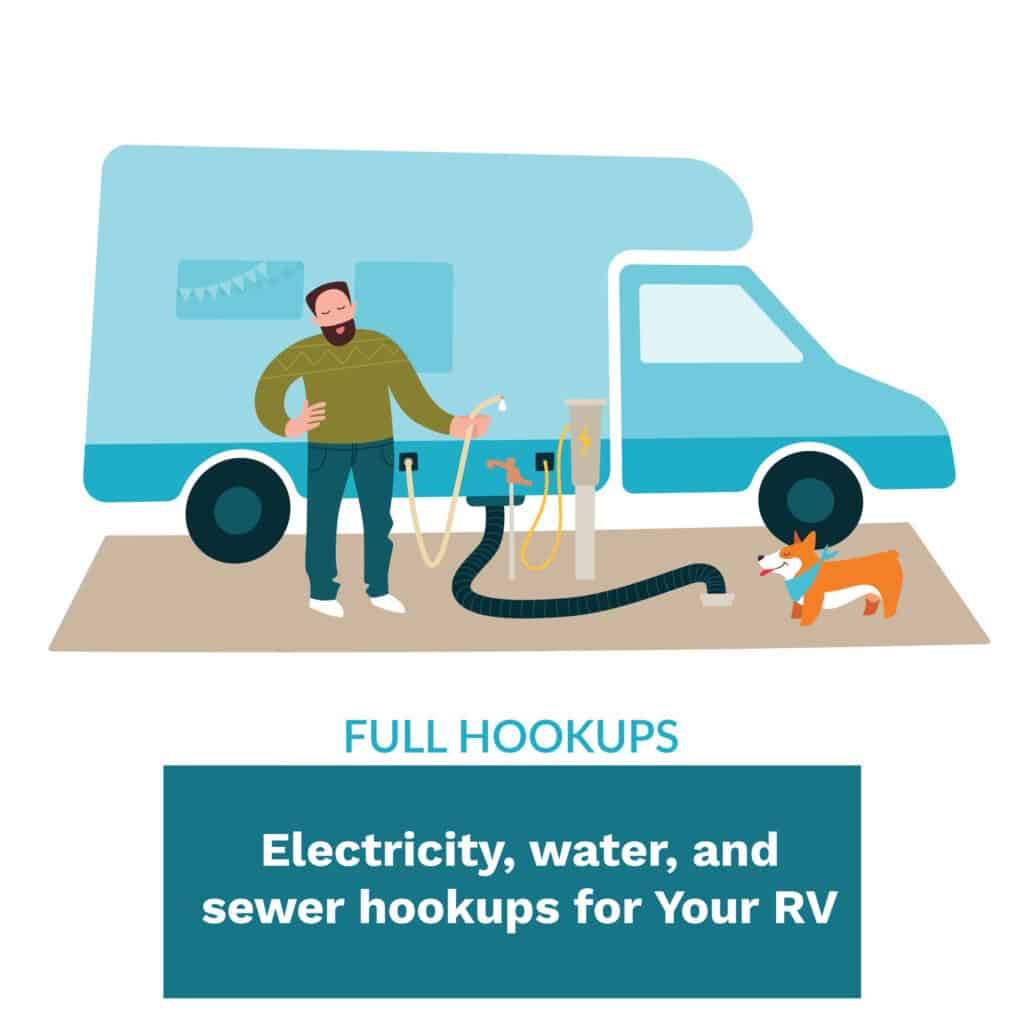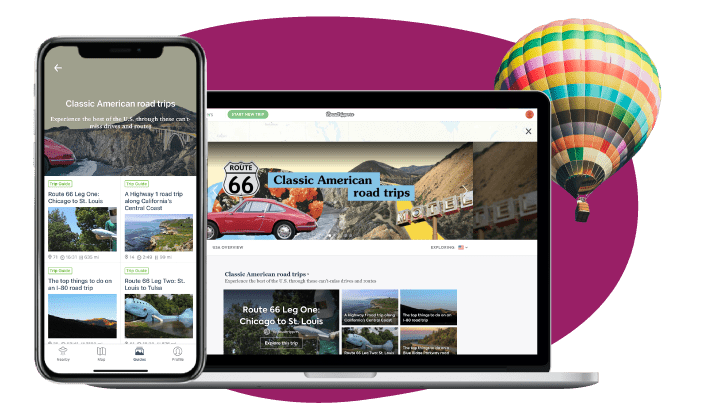If you make a purchase using the links in this article, we may make a commission. And, as an Amazon Associate, I earn from qualifying purchases. See the full disclosure here.
This week, we’ll be discussing RV hookups. If you’re new to RVing or have never gone before, this guide will hopefully clear up some of the mystery surrounding hookups. RV Hookups Explained Water, Sewer, and Electric.
RV hookups provide electricity, water, and a sewer drain for your RV, allowing you to utilize and enjoy it to its fullest potential. Some full setups may also include cable TV and WiFi. Full hookups, which include water, sewer, and power, are available at some campgrounds. Others only provide partial hookups, such as water or water and power. Some campgrounds don’t provide any RV connections at all.
If you’re interested in boondocking, or no-hookup camping, also known as dry camping, we’ll cover that as well. In this article, we’ll go into more depth on each type of RV hookup and how to use them.

Electric RV Hookup
Electric hookups, also known as shore power, come in 15, 30, or 50-amp varieties. When you purchased your RV, you likely received the appropriate power cord, but it is important to know which type of power your RV requires.
Upon arriving at your destination, simply plug the power cord into the outlet on the pedestal provided at your RV spot. Before plugging in, remember to turn off the power source and power down your electronics. If your RV requires 50 amps to power all of its interior features, but the park only provides 30 amps, you can manage, but you will not be able to run everything at once. In such cases, you will also need a converter.
RV Water Hookup
Water is provided from a spigot on your site. Make sure to use a verified dedicated drinking water hose, rather than a garden hose that may contain harmful chemicals. A heated hose may be necessary in colder climates. The water from the spigot goes to your sinks, shower, toilet, etc. in your RV.
However, it is not recommended to directly hook up your freshwater drinking hose to your RV. Instead, use a water pressure regulator and a water filter system before allowing any water to enter your RV through the City Water connection. RV Sewer Hookup The sewer is where the wastewater from your sinks, toilet, and shower will go. The toilet wastewater goes into the black water tank, while the sink and shower wastewater goes into the gray water tank. It is important to never dump any wastewater on the ground, as dumping black water on the ground is illegal and can cause harm. Instead, black water should be dumped into a septic or sewer system. It is important to remember that bacteria and harmful diseases can be present in wastewater.
Cable TV Hookup
Cable TV is not always included as an amenity at full hook-up sites. However, some long-term parks may allow you to hard-wire your rig to Cable TV. Most setups are simple plug-and-play. If you plan on staying long-term, you may need to contact the cable company to have your service hooked up.
WiFi
Wifi is a service that is provided at most RV parks. However, the signal strength depends on your location within the park, the number of well-placed signal boosters, and the number of people using the WiFi at the same time. If you need to make a work Zoom call, I would not recommend relying on this option. Sometimes, a better signal can be obtained at the park’s office if you have to use the WiFi.
Dump Station
If an RV park does not have a sewer hookup at your site, it may have a common dump station that you can use to empty your black and grey tanks. To do so, simply drive or pull your rig to the dump area and empty your tanks as you would if you were at a campsite. Some RVers carry a “blue boy” or small wagon that can be filled with black or gray water and taken to the dump station without moving the RV. Other parks use a “honey wagon” that comes by your site once a week or so to dump your tank for a fee.
What Do Full RV Hookups Mean at an RV Park?
Full RV hookups provide access to electricity, water, and sewer at your site. Although you may pay a bit more compared to a campsite with limited amenities, many high-end RV parks offer additional features such as cable TV and WiFi.
What are Partial RV Hookups?
Partial RV hookups include water and/or electricity, but not a sewer hookup. When staying at a campground with partial hookups, there is often a dump station or a honey wagon available for waste disposal. However, this is not always the case. In some campgrounds, there is no dump station, which means you must find a place to dump your tanks outside of the campground.
Do All Campgrounds Have RV Hookups?
Although most campgrounds provide RV hookups, not all do. Therefore, it’s important to do your research before booking a site to ensure you know exactly what to expect at any given park. Many campgrounds offer a variety of hookup sites, such as full hookup sites, partial hookup sites, and no hookup sites, all within the same park.
Are There RV Hookups in National Parks?
Some national parks have RV hookups, but they are limited. Therefore, make sure you know which campgrounds within the park offer hookups. For instance, Yellowstone National Park has 12 campgrounds, but only one of them offers full hookups. Additionally, most national parks have a length limit of 25 feet. If your rig is more than 25 feet long, you might not be able to stay.
Are There RV Hookups in State Parks?
Most state parks offer a minimum of electricity at each site, so you will have to rely on the fresh water in your tanks and dump your wastewater at a dump station. When arriving at a state park, you can use the community spigot to fill your fresh water tank for use during your stay.
A few state parks do offer full hookups, but this is rare. While state parks may not offer many amenities, they typically provide quiet, shady sites away from other RVers.
Do Walmarts Have RV Hookups?
Walmarts do not have RV hookups, and parking is usually first come, first served. If you plan to park at a Walmart, always ask if RVs are allowed in the parking lot and inquire about any applicable rules for that particular store.
When parking at a Walmart, there are a few things to keep in mind. Use the store lot for overnight parking, but avoid making it a destination for a family vacation. Do not set up chairs, and if possible, do not extend your slide-outs. Always be courteous, pick up any trash around your rig, and leave the area in good condition for the next vehicle to use. Many Walmarts no longer permit overnight parking due to people who have abused the privilege.
Road Trippers

Instantly estimate fuel costs with our powerful route planner. Explore places within a set distance from your route, filter, and sort by reviews, photos, and more.
Promo Code: BTR5QTP
